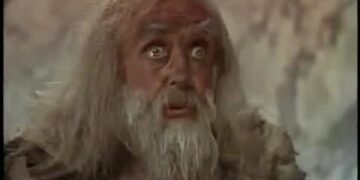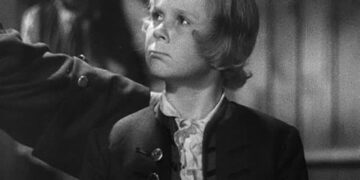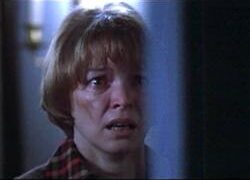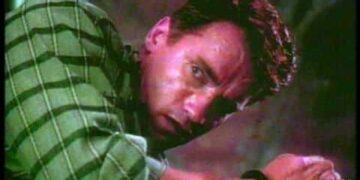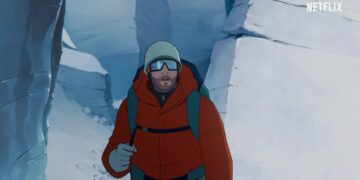Welcome, dear reader, to a journey that takes us beyond the pages of the classic novel “Huckleberry Finn”, penned by the legendary Mark Twain, and into the cinematic world of J. Lee Thompson’s 1974 adaptation. Both the book and the movie are rich in adventure, humor, and deep insights into human nature and societal norms. This article aims to provide a comprehensive book summary, a movie summary, character analysis, and much more. So sit back, relax, and join me as we unravel the adventures of Huckleberry Finn.
First, let’s dive into the world of the author who gave birth to these memorable characters and enchanting narratives. Mark Twain, the pen name of Samuel Langhorne Clemens, was a master storyteller and one of the most celebrated writers in American history. His writing style, marked by wit, satire, and a keen observation of human nature, has left an indelible mark on literature.
A Brief Biography of Mark Twain and His Works
Born on November 30, 1835, in Florida, Missouri, Mark Twain grew up in a world that was rapidly changing. The young Samuel Clemens experienced life in the bustling river town of Hannibal, which later served as the inspiration for the town of St. Petersburg in “Huckleberry Finn”. Twain’s works often reflect his experiences growing up in antebellum Missouri, including the harsh realities of slavery, societal norms, and the complexities of human relationships.
Twain’s writing career took off with the success of “The Celebrated Jumping Frog of Calaveras County”, a humorous short story that gained national attention. However, it was his novels “The Adventures of Tom Sawyer” (1876) and “Adventures of Huckleberry Finn” (1884) that truly solidified his reputation as a literary giant. Twain’s writing has influenced countless authors and continues to be celebrated for its enduring relevance and poignant social commentary.
Huckleberry Finn: Book Summary
The novel “Adventures of Huckleberry Finn” is a tale of freedom, friendship, and the inherent flaws of societal norms. The book summary begins with Huckleberry Finn, a young boy living in the fictional town of St. Petersburg, Missouri. He is under the care of Widow Douglas and Miss Watson, who endeavour to civilize him and teach him religion. However, Huck is a free spirit and is uncomfortable with their constraints.
The story takes a turn when Huck’s alcoholic and abusive father, Pap, returns to claim custody of Huck. Fearing for his safety, Huck fakes his death and escapes to Jackson’s Island, where he unexpectedly encounters Miss Watson’s escaped slave, Jim. Together, Huck and Jim embark on a journey down the Mississippi River, experiencing a series of adventures and meeting a variety of characters.
Throughout their journey, Huck grapples with societal norms and his own conscience, often questioning the morality of slavery. The novel ends with Huck planning to head west to escape further “sivilizing”, leaving readers with a profound examination of societal norms and moral values.
Huckleberry Finn: Movie Summary
J. Lee Thompson’s 1974 adaptation of “Huckleberry Finn” brings the epic tale to life on the big screen. The movie summary closely follows the plot of the novel, with a few cinematic liberties to enhance the visual storytelling. The film opens with Huck’s life with Widow Douglas and Miss Watson, his escape from Pap, and his adventures with Jim on the Mississippi River.
The film stands out for its excellent portrayal of the diverse characters Huck and Jim encounter on their journey. From the deceptive conmen, the “Duke” and the “Dauphin”, to the feuding Grangerford and Shepherdson families, each character is brought to life with brilliant performances and meticulous detail.
The movie, like the book, doesn’t shy away from addressing the harsh realities of slavery and societal norms. The friendship between Huck and Jim, their shared experiences, and Huck’s moral struggle are portrayed with sensitivity and depth. The ending, like the book, leaves the audience pondering the themes of freedom, morality, and the follies of societal norms.
Understanding the Characters: Who’s who in Huckleberry Finn
The world of “Huckleberry Finn” is populated with a diverse cast of characters, each contributing to the story’s depth and complexity. At the heart of the tale is Huckleberry Finn, a young boy with an indomitable spirit and a keen sense of morality. His journey intertwines with that of Jim, an escaped slave whose dreams of freedom and reuniting with his family form a poignant subplot.
Other notable characters include Widow Douglas and Miss Watson, who represent societal norms and conventions; Pap, Huck’s abusive, alcoholic father; and the “Duke” and the “Dauphin”, two conmen who use their wits to deceive others. The Grangerford and Shepherdson families, with their senseless feud, embody the destructive nature of blind hatred and prejudice.
These are just a few of the characters that bring “Huckleberry Finn” to life. Each character, no matter how minor, adds a layer of depth and complexity to the story, making it a rich tapestry of human nature and societal norms.
When and Where Huckleberry Finn Takes Place: A Brief Travel Guide
The setting of “Huckleberry Finn” is as integral to the story as its characters. The novel is set in the antebellum South, with the mighty Mississippi River playing a central role. The story begins in the fictional town of St. Petersburg, Missouri, which is inspired by Twain’s own hometown of Hannibal, Missouri.
The journey of Huck and Jim takes them through various towns and settlements along the Mississippi River. From the feuding families of the Grangerford and Shepherdson to the Wilks sisters deceived by the “Duke” and the “Dauphin”, each location adds to the narrative’s depth and complexity. The river, with its unpredictable currents and vast expanse, symbolizes freedom, adventure, and the unpredictability of life.
Behind the Scenes: Filming Locations of Huckleberry Finn
The 1974 film adaptation of “Huckleberry Finn” does a remarkable job of capturing the essence of the novel’s setting. The filming locations were carefully chosen to reflect the antebellum South and the sprawling Mississippi River. The movie was filmed in various locations in the United States, including Natchez, Mississippi, known for its well-preserved antebellum architecture.
Other filming locations include Arrow Rock, Missouri, which served as the fictional town of St. Petersburg, and the Mississippi River, where the scenes of Huck and Jim’s river journey were filmed. The film’s behind-the-scenes efforts successfully brought the world of “Huckleberry Finn” to life on the big screen, immersing the audience in the adventures of Huck and Jim.
The Music of Huckleberry Finn: Soundtrack by Fred Werner
The music of “Huckleberry Finn” plays a crucial role in setting the tone of the film. The soundtrack, composed by Fred Werner, beautifully complements the narrative and enhances the cinematic experience. Werner’s compositions, with their blend of traditional and folk elements, capture the essence of the antebellum South and the spirit of adventure that permeates the story.
Songs like “Freedom”, sung by Roberta Flack, and “Cairo, Illinois”, performed by Randy Newman, add depth to the film’s themes of freedom and adventure. The music, much like the film itself, is a journey that takes the audience through the highs and lows of Huck and Jim’s adventures, making it an integral part of the movie experience.
Iconic Quotes from Huckleberry Finn
Mark Twain’s “Huckleberry Finn” is known for its memorable quotes that reflect the novel’s themes and characters. One such quote is Huck’s declaration of independence: “All right, then, I’ll go to hell”. This quote, uttered when Huck decides to help Jim escape slavery despite societal norms, exemplifies Huck’s moral struggle and his ultimate decision to follow his conscience.
Another iconic quote is Jim’s assertion of his humanity: “I’s rich now, come to look at it. I owns myself, en I’s wuth eight hund’d dollars”. This quote, coming from a character who was considered property, is a powerful commentary on slavery and a poignant assertion of human worth.
These quotes, among many others, encapsulate the depth and complexity of “Huckleberry Finn”, making it a timeless classic that continues to resonate with readers and audiences.
Unusual Facts: Curiosities about Huckleberry Finn
“Huckleberry Finn” is a novel rich in curiosities and unusual facts. For instance, did you know that the novel was initially met with controversy and was even banned in some places due to its portrayal of friendship between a white boy and a black man, and its unflinching look at the realities of slavery? Another interesting fact is that Mark Twain began writing the book in 1876, only to abandon it for several years before finally completing it in 1884.
In the movie realm, the casting of actor Ron Howard as Huck Finn in the 1974 film was considered unusual at the time, as Howard was primarily known for his role as Richie Cunningham in the popular TV show “Happy Days”. These curiosities add to the fascinating history of “Huckleberry Finn” and its enduring impact on literature and cinema.
Dressing Up: Tips for Cosplaying Huckleberry Finn Characters
For fans wishing to cosplay as characters from “Huckleberry Finn”, there are plenty of opportunities to harness your creativity. To dress like Huck, consider a straw hat, a patched-up shirt, ragged trousers, and bare feet to reflect his free-spirited nature and life on the river. For Jim, opt for simple, period-appropriate attire, such as a cotton shirt and trousers, and remember to portray his character with dignity and respect.
For the conmen, the “Duke” and the “Dauphin”, extravagant and mismatched clothes would be fitting, reflecting their flamboyant and deceptive nature. Remember, cosplaying is all about embodying the character’s spirit and having fun, so feel free to get creative and add your own touch to the characters’ looks.
The Ending of Huckleberry Finn Explained
The ending of “Huckleberry Finn” is open-ended and thought-provoking. After a series of adventures and moral dilemmas, Huck decides to head west to escape further “sivilizing”, while Jim gains his freedom and plans to reunite with his family. The ending leaves readers pondering the themes of freedom, morality, and societal norms.
In the movie, the ending is similarly open-ended, with Huck and Jim parting ways and Huck heading west. The final scene of Huck walking off into the sunset symbolizes his quest for freedom and his refusal to conform to societal norms. Both the book and the movie endings serve as a profound commentary on individual freedom and societal expectations.
Beyond the Book and Movie: Remake, Sequel, Spin-off, and Other Media by J. Lee Thompson
The world of “Huckleberry Finn” extends beyond the book and the 1974 movie. Other media by J. Lee Thompson include a sequel titled “Tom Sawyer” (1973), which tells the story of Huck’s friend and fellow adventurer, Tom Sawyer. There have also been numerous remakes and adaptations of “Huckleberry Finn”, including animated versions, musical adaptations, and modern retellings.
Furthermore, the legacy of “Huckleberry Finn” has influenced other forms of media, such as video games and graphic novels, expanding the reach of this classic tale. The enduring popularity of “Huckleberry Finn” testifies to its timeless themes and unforgettable characters, making it a classic that continues to inspire and entertain.
Similar Media to Huckleberry Finn: Recommendations for Further Reading/Viewing
If you enjoyed “Huckleberry Finn”, there are plenty of similar media to explore. Books such as “To Kill a Mockingbird” by Harper Lee and “The Catcher in the Rye” by J.D. Salinger, like “Huckleberry Finn”, explore themes of childhood, societal norms, and moral dilemmas. In terms of films, “Stand By Me” (1986) and “The Goonies” (1985) capture the spirit of adventure and camaraderie found in “Huckleberry Finn”.
Other Notable Works by Mark Twain
Beyond “Huckleberry Finn”, Mark Twain has penned numerous other works that showcase his storytelling prowess and keen observation of human nature. Notable works include “The Adventures of Tom Sawyer”, “A Connecticut Yankee in King Arthur’s Court”, and “Life on the Mississippi”. Each of these works offers a unique exploration of life, society, and human nature, making them worthy additions to your reading list.
The Impact of Huckleberry Finn: Book Club Discussion Questions
Discussing “Huckleberry Finn” in a book club can lead to insightful conversations about the novel’s themes, characters, and societal commentary. Some discussion questions could include: How does Huck’s character evolve throughout the story? How does the setting of the novel influence the narrative? How does Twain use humor and satire to comment on societal norms and human nature? Discussing these questions can deepen your understanding and appreciation of this classic novel.
Bonus: Video Games Inspired by Huckleberry Finn
The influence of “Huckleberry Finn” extends to the world of video games as well. Games like “The Adventures of Tom Sawyer” (1989) for the Nintendo Entertainment System and “The Adventures of Huckleberry Finn” (1985) for the Apple II computer draw inspiration from Twain’s classic novel, offering players a chance to step into the shoes of Huck and embark on their own digital adventures.
Conclusion
From a comprehensive book summary to a movie summary, character analysis, and more, we have journeyed through the world of “Huckleberry Finn”, exploring its rich narrative, memorable characters, and enduring themes. Whether you’re a literature enthusiast, a movie buff, or simply a fan of great storytelling, “Huckleberry Finn” offers a timeless exploration of freedom, friendship, and the complexities of societal norms. So dive into the adventures of Huck and Jim, and let their journey inspire and entertain you.


